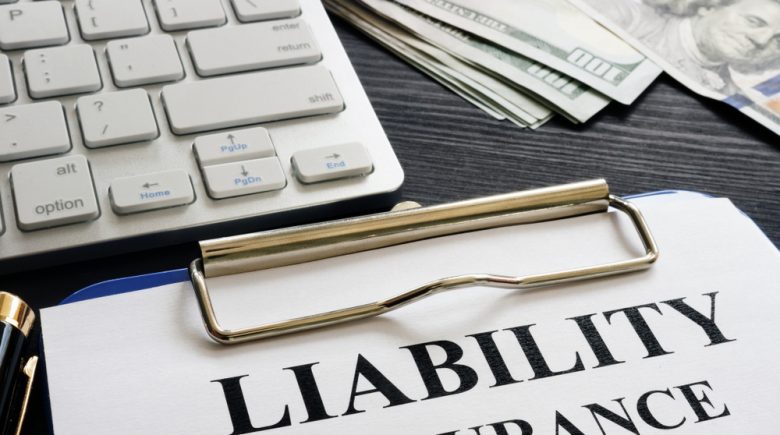Liability insurance is a safeguard that covers the expenses stemming from legal actions and claims. This can involve lawsuits, accidents, and other scenarios where someone might hold you accountable. If someone sues you, liability insurance would handle the settlement. The specific coverage depends on the nature of the claim and the settlement amount if you’re deemed responsible.
Coverage Provided by Liability Insurance:
- Personal Injury: If someone sues you or files a claim, the insurance will cover the damages awarded to the injured party. This holds whether a court mandates the payment or if you settle outside of court.
- Property Damage: This covers damages up to $1 million resulting from incidents causing non-personal harm. This can relate to car crashes, accidents at your workplace, or other property damages.
- Malicious Prosecution: This offers protection if someone unjustly sues you for actions that weren’t your fault. It covers attorney fees, court costs, and the awarded amount to the claimant.
Types of Liability Insurance:
- Employer’s Liability Insurance: Regardless of your business’s size, this protects both you and your employees for workplace-related incidents, like accidents or mishaps.
- Product Liability Insurance: It covers claims against you if your product harms a customer or if they allege it was defective or wrongly labeled.
- Commercial Liability Insurance: This handles claims regarding damages to your business. It typically covers the complete damages awarded to the claimant, making it a cost-effective option.
- Corporate Liability Insurance: It addresses claims by your employees or intra-company third-party claims. It also assists in cases of company mergers or acquisitions.
- General Liability Insurance: This is a broad coverage against personal injuries, property damages, or malicious lawsuits, regardless of the association with your product or service.
Acquiring Liability Insurance:
- Direct Purchase: Buy directly from the insurance provider. While often pricier, it offers individualized coverage.
- Group Policy: Offered to members of a collective, like an employer or association. While it covers everyone in the group, it might not cover individual third-party claims.
- Event Policy: Temporary coverage for specific events, ensuring protection against unforeseen incidents during that period.
- Agreed Value Policy: In the event of property damage, the insurer compensates for the full value of the damaged asset, up to its current worth.
How Liability Insurance Benefits You:
Liability insurance offers a convenient shield against potential legal costs, settlements, and sometimes, attorney fees. Opting for insurance coverage is often more economical than contesting a lawsuit and risking a full payout if you lose. Furthermore, it’s a solid defense against potential litigation, covering damages you might incur from incidents on your premises or work-related events.
With diverse policy options tailored to various scenarios, liability insurance is adaptable. Whether you’re part of an organization seeking group policies, an individual seeking personal coverage, or a business needing product liability protection, there’s a suitable plan for you. With myriad options available, it’s essential to choose the one best aligned with your needs.
Liability insurance is a safeguard that covers the expenses stemming from legal actions and claims. This can involve lawsuits, accidents, and other scenarios where someone might hold you accountable. If someone sues you, liability insurance would handle the settlement. The specific coverage depends on the nature of the claim and the settlement amount if you’re deemed responsible.
Coverage Provided by Liability Insurance:
- Personal Injury: If someone sues you or files a claim, the insurance will cover the damages awarded to the injured party. This holds whether a court mandates the payment or if you settle outside of court.
- Property Damage: This covers damages up to $1 million resulting from incidents causing non-personal harm. This can relate to car crashes, accidents at your workplace, or other property damages.
- Malicious Prosecution: This offers protection if someone unjustly sues you for actions that weren’t your fault. It covers attorney fees, court costs, and the awarded amount to the claimant.
Types of Liability Insurance:
- Employer’s Liability Insurance: Regardless of your business’s size, this protects both you and your employees for workplace-related incidents, like accidents or mishaps.
- Product Liability Insurance: It covers claims against you if your product harms a customer or if they allege it was defective or wrongly labeled.
- Commercial Liability Insurance: This handles claims regarding damages to your business. It typically covers the complete damages awarded to the claimant, making it a cost-effective option.
- Corporate Liability Insurance: It addresses claims by your employees or intra-company third-party claims. It also assists in cases of company mergers or acquisitions.
- General Liability Insurance: This is a broad coverage against personal injuries, property damages, or malicious lawsuits, regardless of the association with your product or service.
Acquiring Liability Insurance:
- Direct Purchase: Buy directly from the insurance provider. While often pricier, it offers individualized coverage.
- Group Policy: Offered to members of a collective, like an employer or association. While it covers everyone in the group, it might not cover individual third-party claims.
- Event Policy: Temporary coverage for specific events, ensuring protection against unforeseen incidents during that period.
- Agreed Value Policy: In the event of property damage, the insurer compensates for the full value of the damaged asset, up to its current worth.
How Liability Insurance Benefits You:
Liability insurance offers a convenient shield against potential legal costs, settlements, and sometimes, attorney fees. Opting for insurance coverage is often more economical than contesting a lawsuit and risking a full payout if you lose. Furthermore, it’s a solid defense against potential litigation, covering damages you might incur from incidents on your premises or work-related events.
With diverse policy options tailored to various scenarios, liability insurance is adaptable. Whether you’re part of an organization seeking group policies, an individual seeking personal coverage, or a business needing product liability protection, there’s a suitable plan for you. With myriad options available, it’s essential to choose the one best aligned with your needs.



